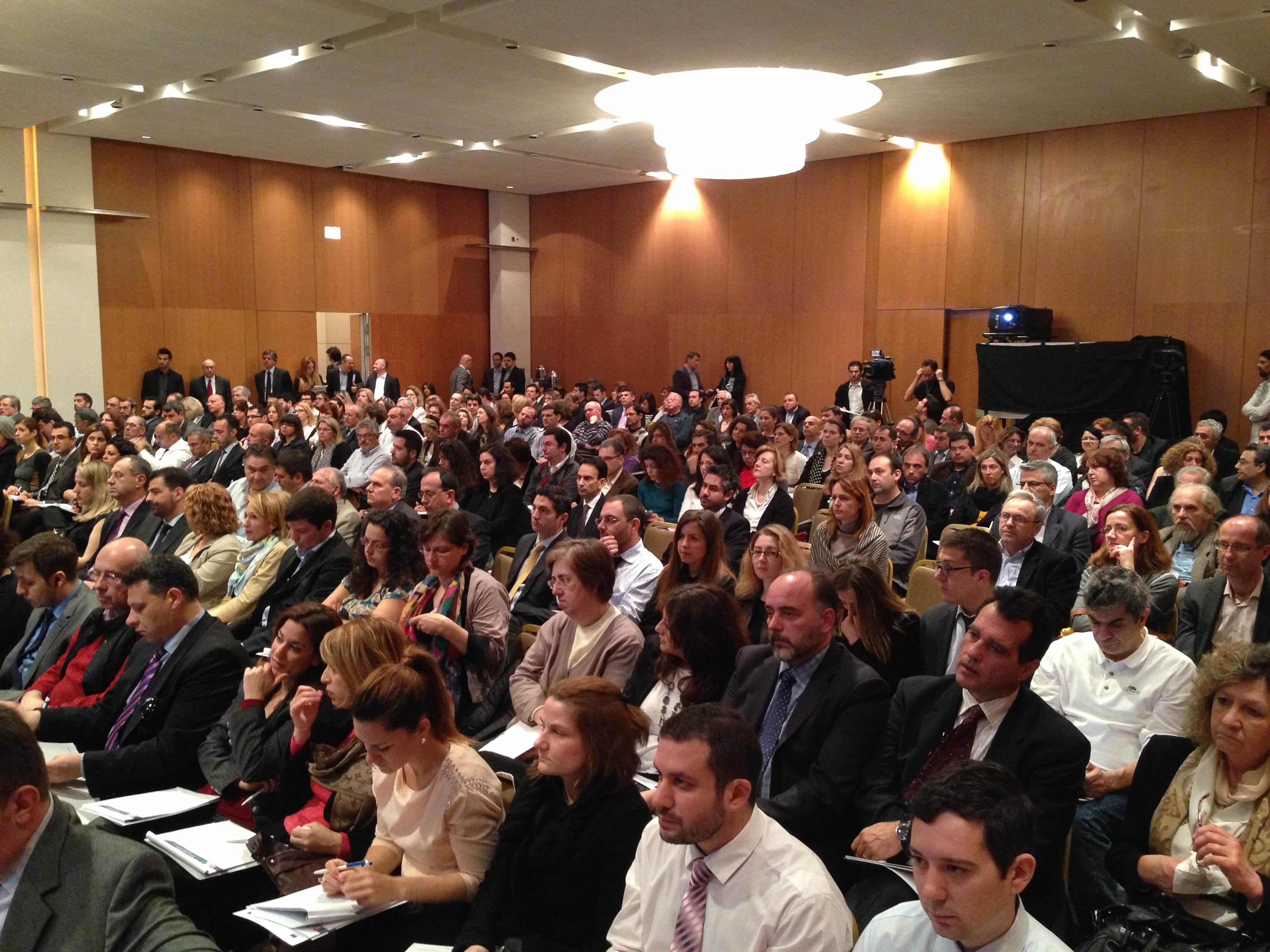 The Minister of Development and Competitiveness, Mr Kostis Hatzidakis, stressed that the programme 'Epanekkinisi (Restart)' of the new NSRF for strengthening entrepreneurship will place emphasis on nine specific sectors of the economy in which the country has comparative advantages and which can bear immediate, positive results for the recovery of the economy and the creation of jobs.
During his speech at the symposium for public consultation on 'Epanekkinisi', Mr Hatzidakis noted that with this programme, which will be the largest operational programme of the new NSRF, we are breaking with the decades-old tradition that placed emphasis mainly on technical works, as funds will be channeled towards:
- Tourism in general and specific forms of tourism.
- The sector of Agro-nutrition, in cooperation with the Ministry of Rural Development
- Logistics
- The Environmental industry
- The sector of health and the pharmaceutical industry.
- Energy production and saving.
- Information and Communications Technologies.
- The sector of materials-constructions.
- Creative industries that include sectors such as Greek design and culture.
Moreover, the qualitative characteristics that will be enhanced by the new programme will be innovation and extroversion. As it is known and as instructed by the Prime Minister, Mr. A. Samaras, the funds to strengthen innovation are doubled, increasing from 4% of the budget during the last programme to 8%. Moreover, even if an enterprise is not included in the priority sectors, it can receive financing if it is clearly export-oriented.
In reference to the problem of liquidity, the Minister of Development stressed the need to create specially adapted, flexible financial products in the countries more adversely affected by the crisis, such as Greece, and to utilise non-banking financing instruments, such as business angels and venture capital funds. As he stressed, "generally speaking, our new philosophy must focus less on direct aid and more on greater leveraging of funds".
He also noted that 9 Sector Councils, one for each priority sector and consisting of representatives of the business community, will be established for the 'Epanekkinisi' Programme, monitoring the implementation of the development plan, proposing measures and strategies to support each sector and recording whether policies are being implemented and what their impact on competitiveness is.
Following the completion of the public consultation, which will last until 22 April, the 'Epanekkinisi' Programme will be sent to Brussels, while all Sector and Regional Programmes are expected to have been sent to the European Commission by 28 April.
The detailed texts subject to public consultation will be posted online on the following website:http://www.antagonistikotita.gr
3/4/2014-Speech by the Minister of Development and Competitiveness, Mr Kostis Hatzidakis, at the symposium for public consultation on the Operational Programme Competitiveness, Entrepreneurship and Innovation ('EPAnEK-kinisi') of the new NSRF
3/4/2014-Memorandum
|  back
back



Follow us on Social Media